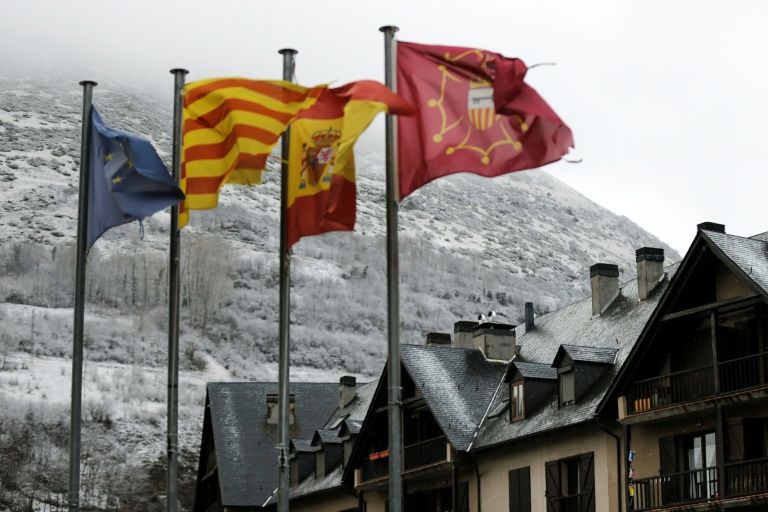Deep in the mountains, Aran Valley resists Catalan independence
Viella, Spain, (MILLAT ONLINE):”This isn’t Catalonia”: Tucked deep in the snowy Pyrenees mountains, the Aran Valley appears far removed from the secession crisis rocking the rest of the region.
Speaking a form of the Occitan language like some of their neighbours in southern France, with a distinct culture, many residents of this Catalan district have firmly resisted calls for independence.
After crossing the Port de la Bonaigua mountain pass into this secluded area under heavy snowfall, the blue, red and yellow separatist flags hanging in other Catalan villages nearby are hardly anywhere.
“This isn’t Catalonia, this is different,” Amador Marques, a pastry chef who farms in his spare time, says at a small ranch that rears cows, geese, hens and baby goats.
“Older people, my grandparents and myself have always said that we’re Aranese first, then Spanish.”
With just 10,000 residents in an area roughly the size of Madrid, Aran lies on the French side of the Pyrenees mountain range, but in 1313 it became part of the Kingdom of Aragon, which would later be absorbed into the Spanish monarchy.
The Aranese, who were almost completely cut off from the rest of the country until the middle of the 20th century, have observed from afar the crisis between Catalonia’s separatist leaders and Spain’s central government.
In the last regional elections in 2015, they were the Catalan district that gave the least support to separatist parties, which nevertheless went on to win an absolute majority in the regional parliament.
And Bosost, Marques’s village, was the municipality which gave the most support to anti-independence groupings.
– An independent Aran? –
“Here, we know what it’s like to live with borders. And we don’t want any more,” says Marques, 58.
Having grown up just a couple of kilometres from France, he remembers with bitterness the times he needed to show his passport just to sell wool in neighbouring villages on the other side of the border.
In his village of 1,100 residents, with stone houses with black slate roofs and where the Garonne river snakes its way to France, there are only a few posters for the regional elections on December 21, and all are for parties against independence.
Called by Prime Minister Mariano Rajoy after Catalonia’s parliament declared independence on October 27, the elections are an attempt to “restore normality” to a region deeply divided over whether to break from Spain.
“Here, we’re good the way we are, we don’t mind being part of Spain. There is no Catalan feeling,” says Juan Francisco Pedarros, a 60-year-old butcher.
